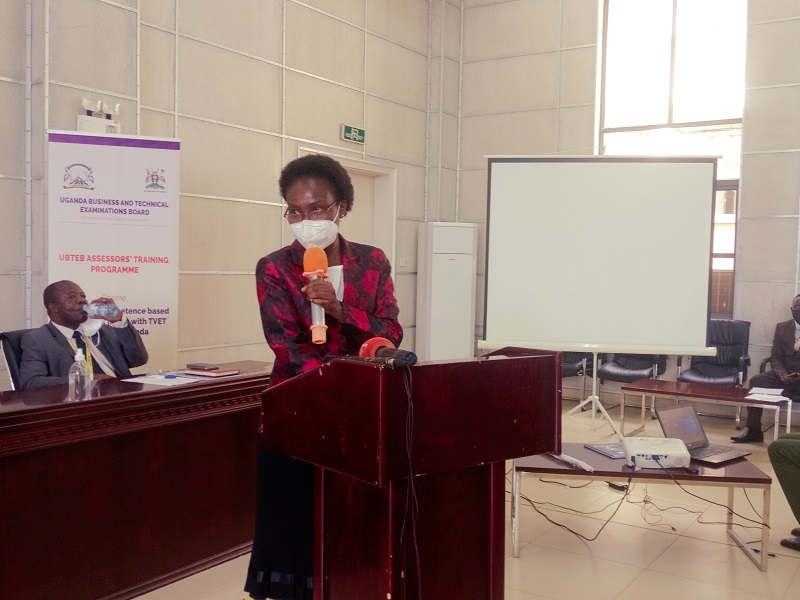
KAMPALA – The Ministry of Education and Sports has urged Uganda Business and Technical Examinations Board – UBTEB to maximize practical sessions during the training to Technical and Vocational Education and Training – TVET assessors which will, in turn, minimize job seekers and unemployment.
The call was made by the ministry’s Permanent Secretary Ketty Lamaro who had on Wednesday officiated at the opening of the third phase training of TVET Assessors at the Uganda Industrial Research Institute, Namanve.
“We would like to see the biggest part of TVET, both training and assessment placed in the practical aspects of trainee’s passion so that the graduates are more productive and relevant to the economy hence minimized job seekers and unemployment.”
“This training is important for you to strengthen your capacity of delivery of the TVET assessment, collaborate with the industry in your training locality in both TVET industries training and assessment; and to link the TVET delivery to productive realities of communities,” she added.
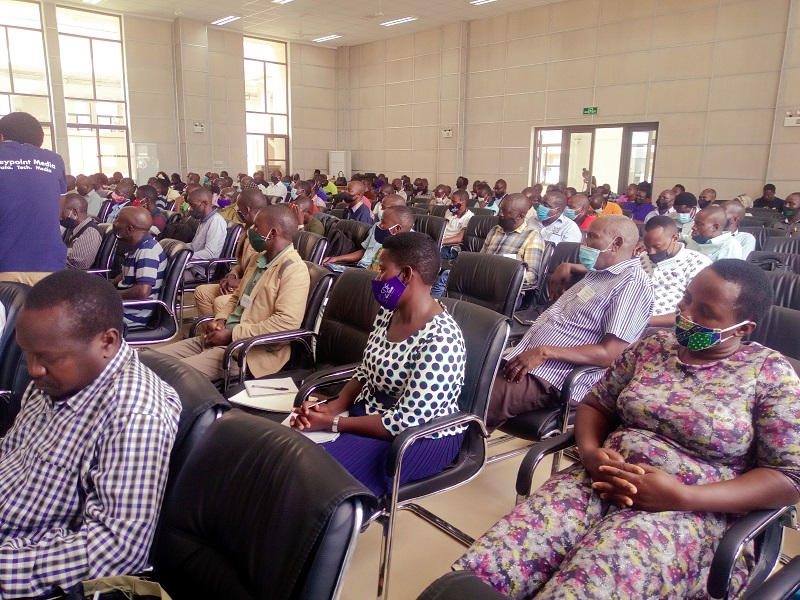
The training supported by the Ministry of Education and USDP World Bank project, targets to raise the Assessors’ capacity to reflect the trend’s innovations and the labour needs of the evolving industry.
In this training, according to Mr. Oyesigye Onesmus, the UBTEB Executive Secretary, emphasis is laid on the linkages between the industry, training and assessment and particularly the need to maximize both the interest skills and experience of the practitioners.
Ms. Lamaro says the quality of TVET graduates is dependent on the relevancy of the TVET curricula and the competence of the TVET trainers.
“The policy 2019 has placed emphasis on three major areas; making TVET learning as flexible and relevant as possible, linking TVET training and assessment with the world of work to enhance its practicability and placing the industry at the force front on the TVET system on the curricula relevant by turning to modular and tailored,” said madam PS.
Lamaro says the Education sector development is anchored on the objectives of accelerating access to education and training, improving on the quality of the learning outcomes and ensuring efficiency and effectiveness in education service delivery, revealing that TVET delivery and TVET assessment contribute to the first two objectives focusing mostly on the quality and productivity of human capital.
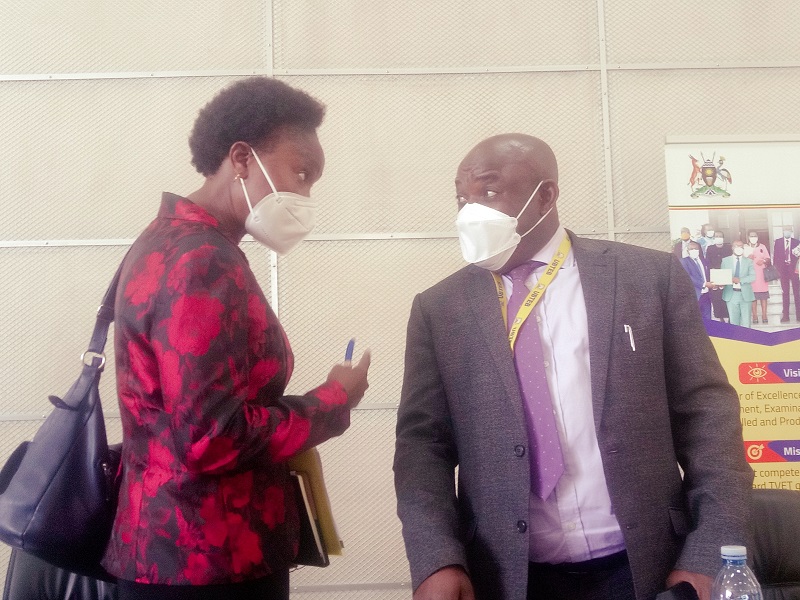
She revealed that in this aspiration, her ministry has done a mini-restructuring of the directorate of higher education and created departments to focus on TVET specific service delivery structures in line with overall government rationalization programme.
“We now have in place the departments of TVET operations and management, health institutions training and TVET trainers training. The ministry is also reforming the entire TVET delivery and assessment system to attract the significant evolvement of the industry, reset the learners’ mindset and promote TVET training anchored on established occupational standards.
She said that the ministry will have one assessment Board for all-level TVET training ranging from non-formal, informal and formal training and coordinating the curricula development in consultation with both the industry through sector skills councils and training institutions.
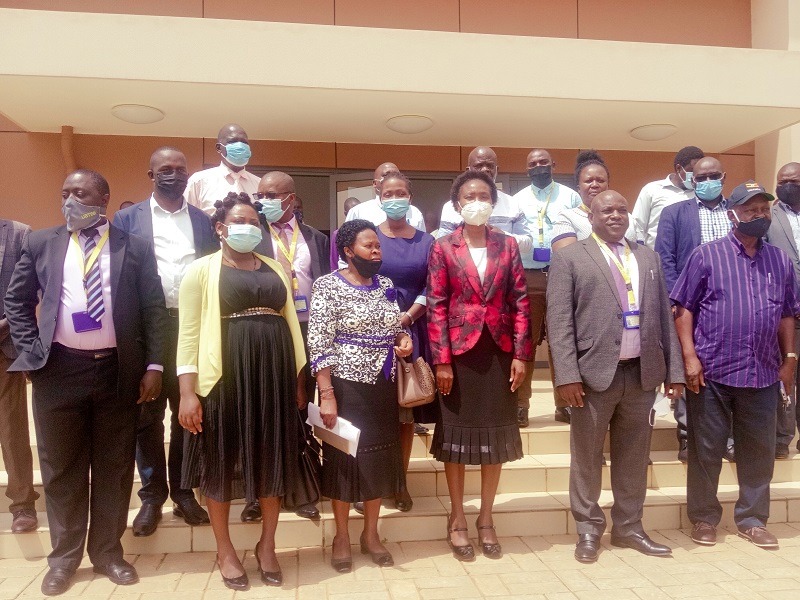
According to her, the government has already provided the land for the construction of the UBTEB assessment centre and the required start-up funds.
“We pledge total support to all efforts geared towards preparing the skilled human resources especially the involvement of the world of work in order to contribute to the national vision 2040. We are committed in our resolve to provide appropriate technical and financial support to UBTEB to ensure that its mandate is delivered.”
Mr. Oyesigye revealed that the 3rd phase participants include lecturers and instructors from Uganda Technical Colleges which are centers of excellence.
The institutions of these centers, he said include UTC lira, UTC Bushenyi, UTC Elogon, UTC Kichwamba, and Bukalasa Agricultural college.
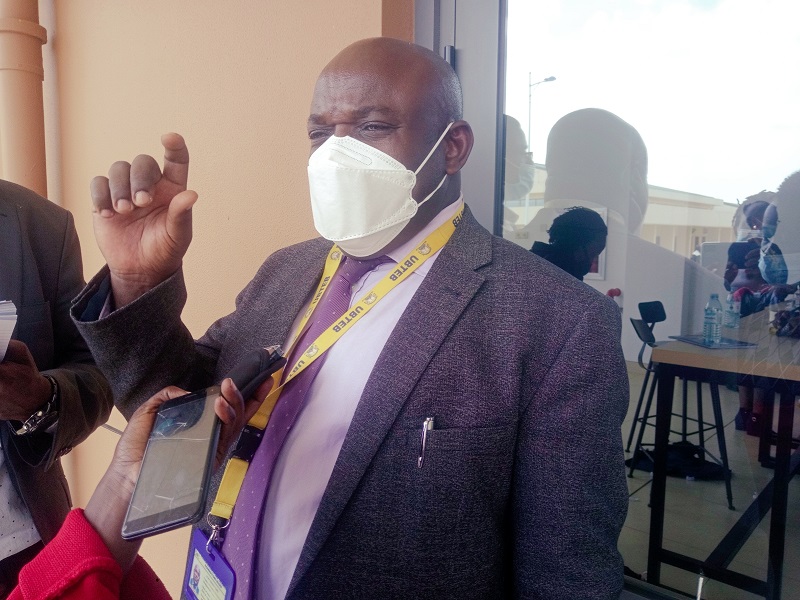
“The participants were carefully selected in consultation with the heads of assessment centers and the industry to ensure that we create a creamy of Assessor’s who in turn will upskill trainees with skills and attitude to work but also create a change in the ways and modalities, we deliver and assess TVET programmes,” he said.
He said that upon training completion, the participants are expected to come up with assessment tools aligned to the industry and assessment standards to enroll in the UBTEB assessors’ database.
“Currently we have a database of 321 TVET assessors already trained, I’m glad to announce that today we have embarked on the journey of expanding on the database. Upon completion of this training, we shall certify all the participants trained as verifiers of our assessment processes. I’m happy to report that in this training some participants are attending for the second time and have started the phase of training to enroll as verifiers.”





